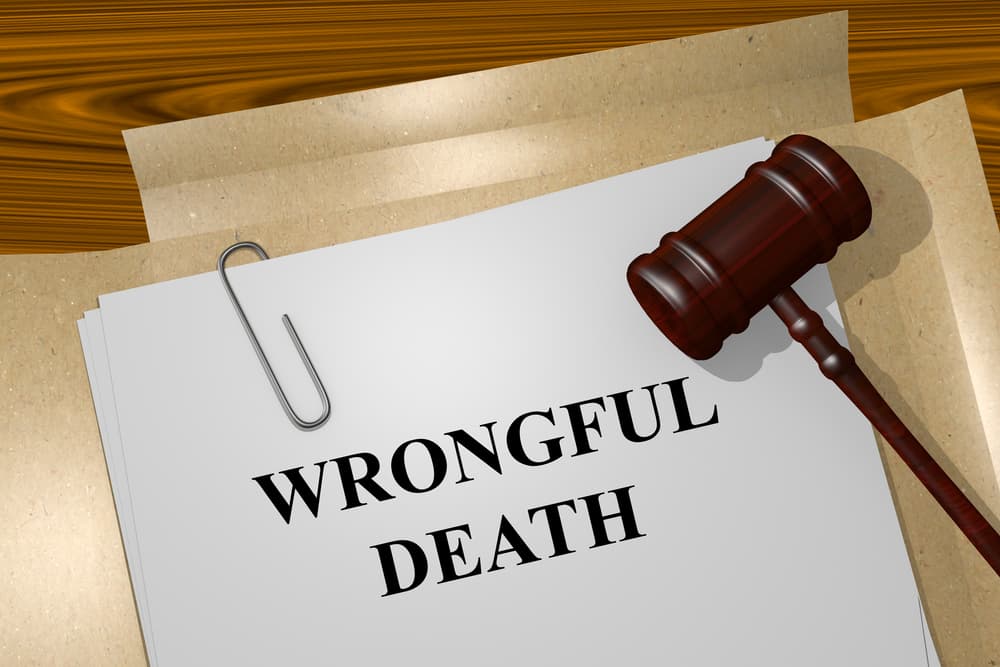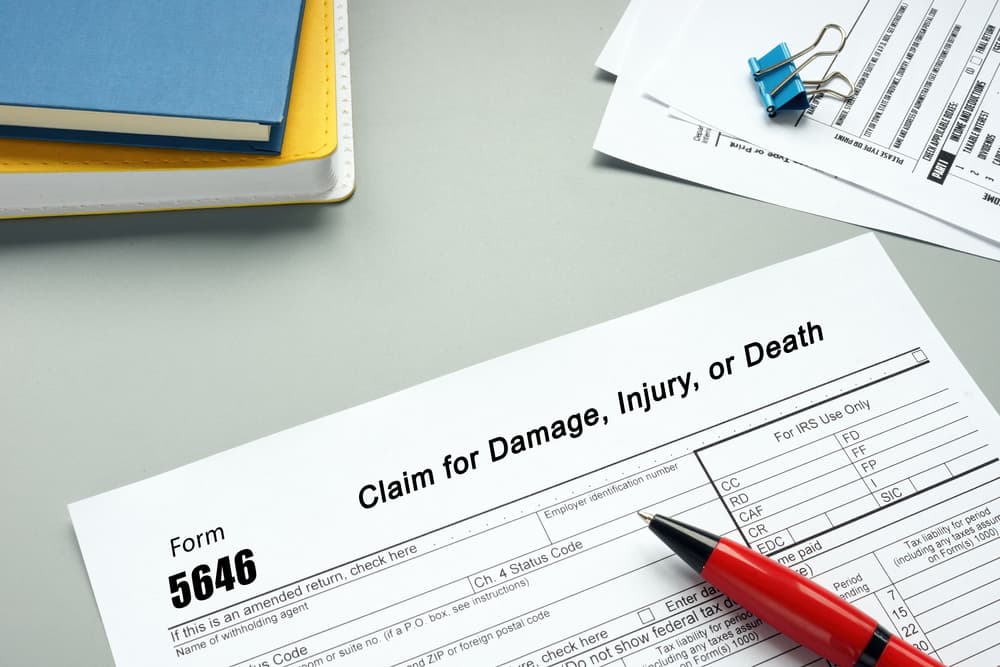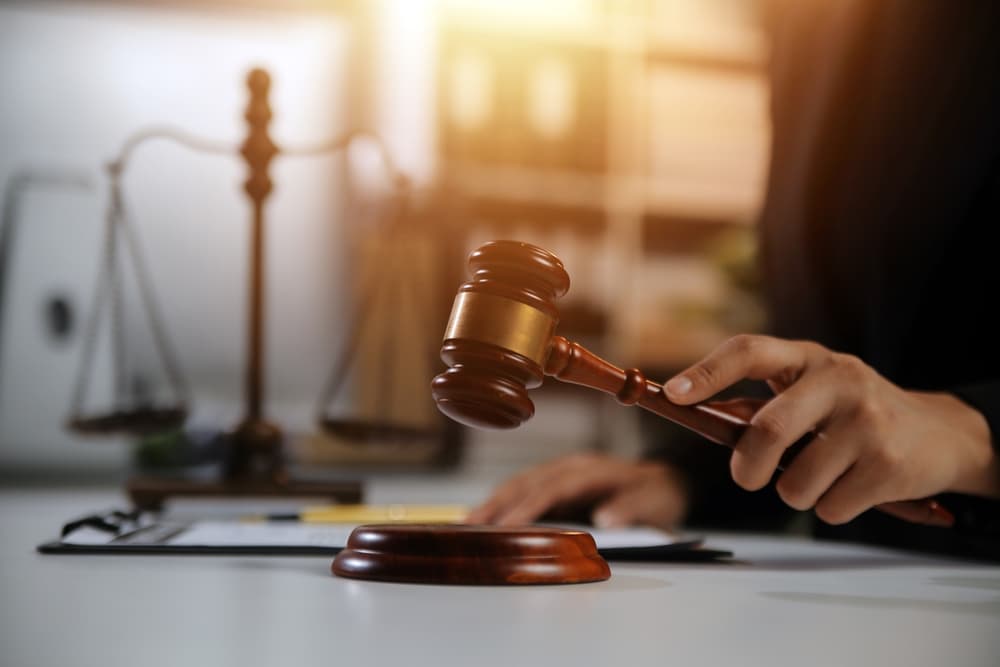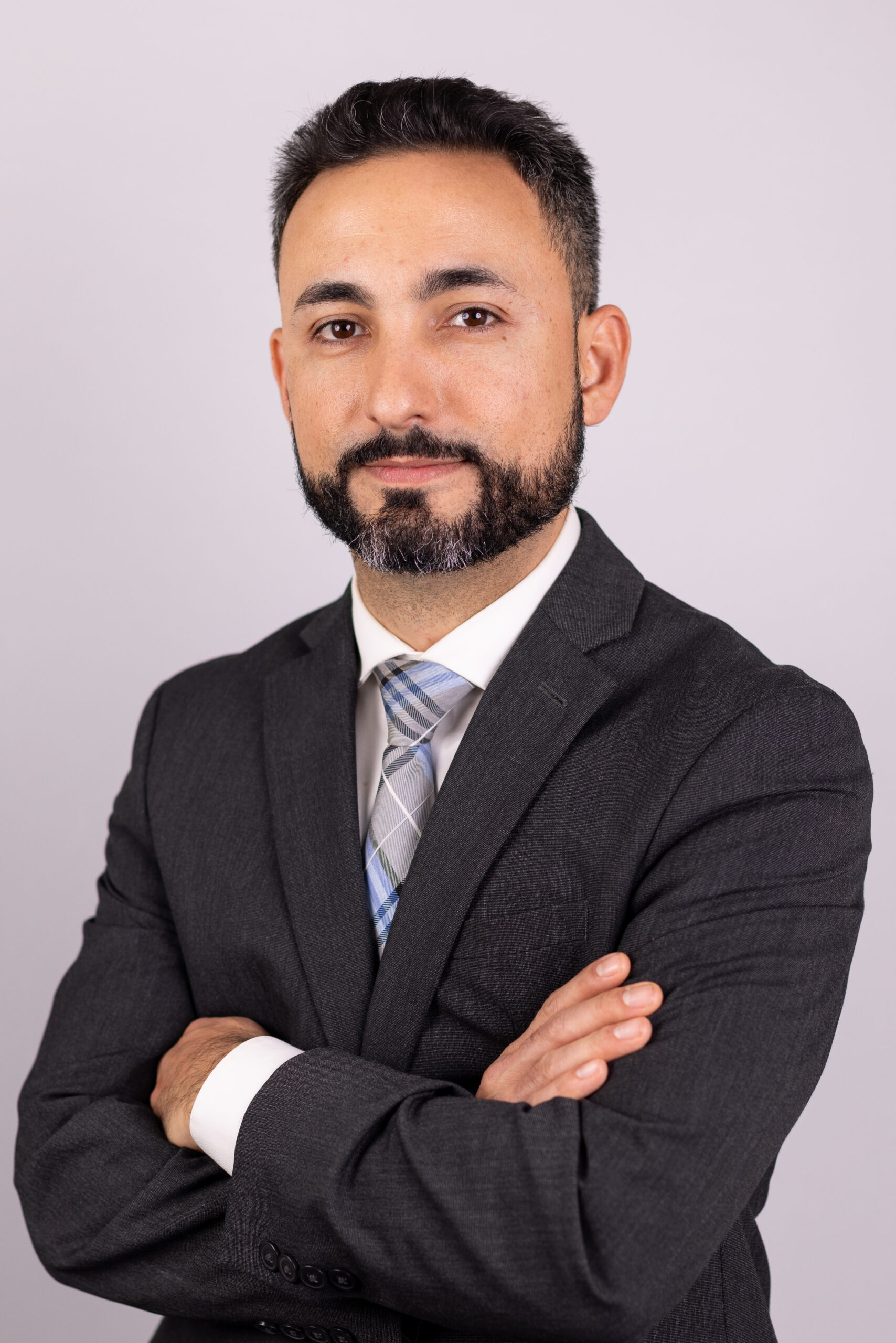Losing a loved one can bring about one of life’s greatest challenges. Not only do you face the mental and emotional impacts, but also the financial repercussions of an untimely loss.
Wrongful death lawsuits arise when someone loses their life due to another party’s negligence or wrongful act. The legal process for these cases involves determining liability, proving damages, and negotiating settlements.
Surviving family members may wonder whether they can expect to receive an average wrongful death settlement. A Tampa wrongful death attorney can provide better insight and personalized guidance concerning the value of your case and work toward obtaining the best possible case result on your behalf.
Defining Wrongful Death

A wrongful death claim is a legal action brought by the surviving family members or personal representative of someone who has died due to the negligent, reckless, or intentional actions of another party.
Some of the common causes of wrongful death include:
- Traffic accidents: Collisions involving cars, trucks, motorcycles, or pedestrians.
- Premises liability incidents: Accidents on another’s property that result in death, including slip and falls or falls from heights.
- Medical malpractice: Negligence by a healthcare professional leading to death.
- Product liability: Defects in products that cause fatal injuries.
- Workplace accidents: Fatalities resulting from unsafe work conditions or practices.
- Criminal acts: Deaths caused by violent crimes like assault or murder.
The unexpected loss of a loved one at the hands of another can cause many financial burdens. By filing a wrongful death claim, surviving family members and beneficiaries are given the opportunity to obtain just compensation for their losses and expenses.
Is there an Average Wrongful Death Settlement?
When filing a wrongful death claim, the primary objective, along with seeking justice, is to pursue financial recovery representing the value of the loss. For this reason, many family members question whether there is an average settlement and, if so, how much it’s worth.
In reality, there is no average wrongful death settlement. This is because every case is so unique, featuring various victims, defendants, and overall circumstances.
Every wrongful death case has a specific value based on the situation and numerous factors. When you hire a wrongful death attorney, your lawyer can thoroughly investigate your situation and clarify how much your case is worth.
Knowing the value of your case can give you a better idea of what you could anticipate from your settlement.
Factors Influencing Wrongful Death Settlements
One of the most important tasks in a wrongful death case is calculating damages. To determine the value of a wrongful death claim, you need a lawyer to assess several influential factors, including:
Economic Losses
Economic losses are measurable damages resulting from the death of a loved one.
They can include:
- Lost income: The deceased’s potential future earnings, including salary, earnings, bonuses, and benefits. If the deceased was a primary breadwinner, this can be a significant portion of your settlement.
- Funeral and burial expenses: The costs associated with laying your loved one to rest.
- Medical expenses: Costs incurred before death due to the injury or illness caused by the defendant’s actions.
Typically, evidence is more readily available for economic losses, including records and receipts.
Non-Economic Losses
Non-economic damages represent non-financial losses. These include:
- Loss of consortium: The emotional and psychological impact on surviving family members, including loss of companionship and affection.
- Pain and suffering: The physical and emotional suffering endured by the deceased before death. These damages can also represent the family’s pain and suffering.
- Loss of guidance and nurturing: Particularly relevant in cases involving the death of a parent or caregiver.
Because non-economic damages are more subjective, they can be especially difficult to prove. A wrongful death lawyer can provide certain key pieces of evidence to help substantiate these losses.
The Severity of the Negligence
The extent of the defendant’s negligence can aid in determining settlement amounts. Cases involving clear negligence and egregious or intentional wrongdoing often result in higher amounts due to the added punitive element.
Insurance Coverage
In some cases, you can pursue wrongful death damages through insurance. For example, if a car accident took your loved one’s life, you can pursue compensation through the at-fault party’s insurer.
The amount of insurance coverage available can influence a settlement. Insurance policies have caps on payout amounts based on policy limits, which can limit the total insurance settlement. In these cases, you may need to consider filing a legal claim to continue your pursuit of just monetary recovery.
Jurisdiction and Local Laws
Settlement amounts can vary by jurisdiction due to differences in state laws regarding wrongful death claims. Some states have caps on damages or different rules for calculating economic and non-economic losses.
The Strength of Available Evidence
The strength of your evidence can also play a role in your overall wrongful death settlement. Generally, cases with more substantial evidence fare better, as you can definitively prove significant details of your case, including the cause of death, liability, and the value of your damages.
Photos and videos, witness statements, and medical records, among many other things, can help you secure a better settlement.
Calculating Settlement Amounts for Wrongful Death Cases

While there is no one-size-fits-all formula for calculating wrongful death settlements, several methods can be used to estimate potential amounts, depending on the type of damages:
- Economic damages: Attorneys typically use the deceased’s income level, life expectancy, and projected future earnings, among other factors, to estimate economic damages. This calculation may also involve expert testimony from economists or financial analysts.
- Non-economic damages: Attorneys rely on precedent cases, expert testimony, and the case's specifics to estimate these damages. There are various methods, including multiplier approaches (multiplying economic damages by a factor) or per diem approaches (assigning a daily value to the deceased’s life and multiplying it by the number of days from the injury to death), which can help assign a value to non-economic losses.
Additionally, negotiations have a part in determining final settlement amounts. In many cases, wrongful death claims are settled out of court. Settlement negotiations involve both parties discussing potential compensation and reaching a mutually acceptable amount. The strength of the evidence, the parties’ willingness to settle, and the anticipated outcome of a potential trial can influence the result.
In wrongful death claims, calculating your damages and getting to an eventual monetary figure can be difficult. However, when you have a skilled attorney handling your case, you can rely on their skill not only to determine how much your case is worth but also to get you the case result you deserve.
Additional Details That Can Influence a Wrongful Death Settlement Amount
When pursuing compensation for the death of a loved one, several additional details can impact the ultimate settlement you obtain. These include your state’s statute of limitations for wrongful death claims, hiring a skilled wrongful death lawyer, and insurance negotiations.
Statute of Limitations
Each state has a statute of limitations that sets the deadline for filing a wrongful death claim.
Depending on your state’s laws, you can have as many as three years, like in South Carolina, but as little as one year, like in Louisiana. Most states, like Florida, are middle of the line, allowing two years to file a wrongful death lawsuit.
Certain exceptions apply to the statute of limitations. For example, if the party responsible for a person’s death is a governmental entity, the time to file a claim may decrease, and you may face additional procedural considerations. The discovery rule can also apply to your case, allowing more time to discover the cause of the death.
Hiring a Skilled Attorney

Failing to file your claim in the timeframe allowed under state law and exceptions can result in forfeiting your rights to obtain any compensation for your loved one’s death. Therefore, take timely action after the death of a loved one.
A seasoned wrongful death attorney can provide invaluable assistance in navigating the complexities of these types of cases. A lawyer can handle your wrongful death claim from beginning to end, managing all vital tasks, including gathering evidence, estimating damages, and negotiating settlements. Having an attorney on your side means protecting your interests throughout your case.
In most cases, parties with legal representation fare much better than those without. For this reason, hire a wrongful death attorney soon after your loved one’s passing for more beneficial results.
Insurance Negotiations
If your case involves an insurance claim, negotiations with the insurance company can influence the outcome of your claim. Insurance companies often seek to settle claims for the lowest possible amount, and they don’t play fair. Legal representation can ensure they don’t take advantage of you, and settlements reflect the full extent of your damages and losses.
What to Do Following the Death of a Loved One
What you do after the death of your loved one can help you protect your rights when pursuing justice and compensation through a wrongful death claim. Taking the right steps can assist in getting the financial recovery you need for your immense loss.
Take a Moment to Grieve
First and foremost, take the time and space you need to mourn the loss of your loved one. So often, family members try to skip over the inevitable grieving process, putting their feelings on the back burner to try to move on without their loved one.
While ignoring your thoughts and emotions can seem like the right thing to do in the moment, it almost always comes back up to the surface later on, and often during the worst times.
Losing a loved one is never easy, regardless of the circumstances. But the loss is made even worse when the death is unexpected and unfair. While grieving can look different for everyone, take a moment before picking yourself back up, finding strength, and proceeding with your legal claim.
Collect Helpful Evidence
As soon possible, collect evidence for your wrongful death case. Whether you suspect your loved one’s death occurred under suspicious circumstances or you know for sure, gathering evidence can greatly assist with your claim and eventual settlement.
Whether it’s photographs, bills, or police reports, collect anything you think may be relevant to the situation. Your lawyer can gather more evidence as it becomes available throughout your case.
Consult a Wrongful Death Attorney
Consulting and hiring a wrongful death lawyer is one of the most important things you can do for your case. A legal advocate can have a significant and positive impact on the case as a whole, from the very beginning until settling.
Having an attorney helps protect your rights and those of the other surviving family members but also helps ensure you get the most favorable settlement for your case.
A Wrongful Death Lawyer Can Assist You in Your Pursuit of a Just Settlement
When you lose a loved one as a result of another’s wrongdoing, you may feel particularly frustrated and devastated. Not only do you have to deal with emotional pain and grief, but you may also face financial difficulties due to the loss of your loved one's income and support.
You want to know what you can expect from your case, especially regarding a monetary settlement. Wrongful death settlements vary greatly depending on the specifics of each case. While there is no average for these types of cases, you can rely on a lawyer to provide clarity on the matter.
Navigating a wrongful death claim can be complex and emotionally taxing, but with the right legal support and understanding of the settlement process, you can obtain the justice and financial recovery you deserve for your profound loss.
By hiring a personal injury lawyer, you can focus on grieving and healing while they handle the legal aspects of your case. They will provide you with the support and guidance you need during this difficult time, answering your questions and keeping you informed every step of the way.
We proudly serve Hillsborough County, Pinellas County, Pasco County, Polk County, and its surrounding areas in Florida:
Apex Law Firm - Tampa Office
412 E Madison St Suite 1206, Tampa, FL 33602
(813) 444-5212


